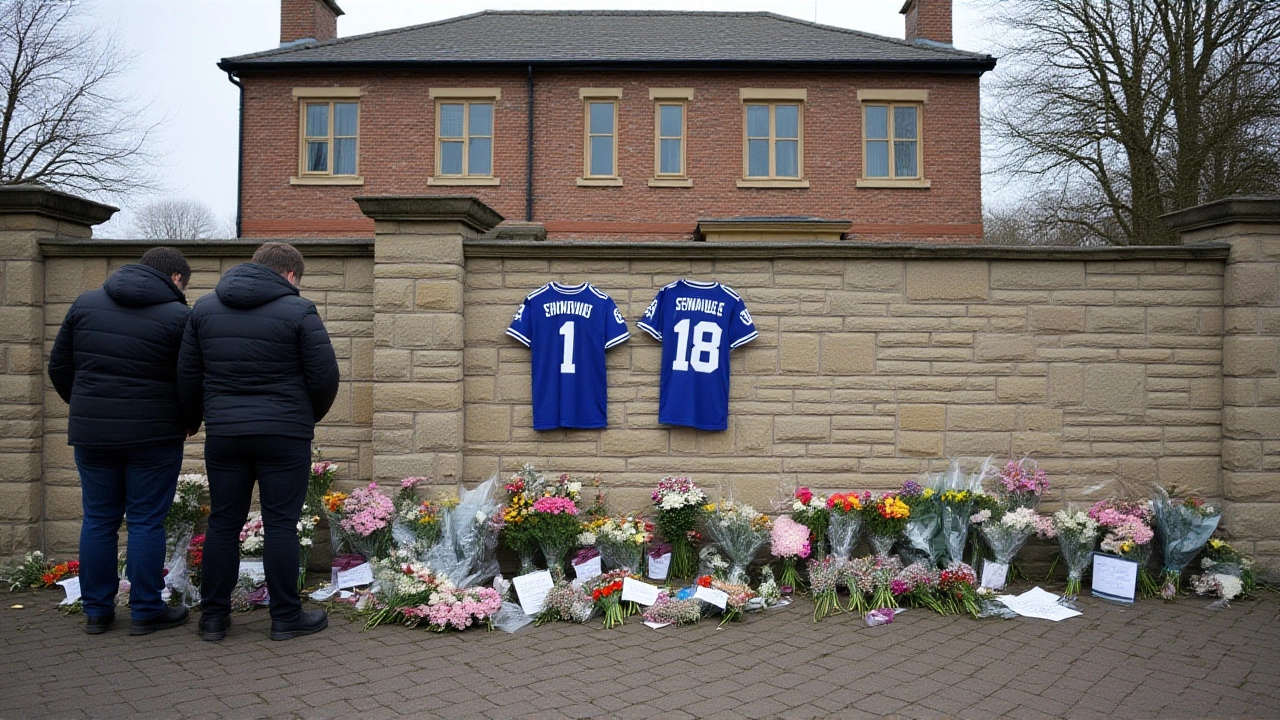Hyde – Non‑League Football Legacy
When talking about Hyde, a historic town in Greater Manchester famed for its passionate football culture. Also known as Hyde FC, it serves as home to Hyde United, the town’s senior non‑league side competing in the Northern Premier League. The club’s place in the Northern Premier League, the eighth tier of English football that shapes the season’s fixtures and rivalries defines much of its competitive rhythm. Meanwhile, Tameside, the metropolitan borough that encloses Hyde provides the community backbone that fuels matchday crowds and local support. Together, Hyde, Hyde United, the Northern Premier League and Tameside form a tightly knit football ecosystem.
Grassroots Passion and Community Roots
Grassroots football thrives in every park and schoolyard across Tameside, and that energy filters straight into Hyde United’s fan base. Local youth clubs nurture talent, often feeding promising players into the senior squad – a cycle that keeps the club’s identity authentic. The synergy between community coaches, school programs, and the club’s academy means that matchday rosters frequently feature home‑grown names, reinforcing the bond between the town and the team. This grassroots engine also fuels volunteer initiatives, from ticket sales to stadium upkeep, proving that non‑league football lives as much in the streets as on the pitch.
Hyde United’s storied runs in the FA Cup illustrate how a well‑rooted club can punch above its weight. Historic upsets against higher‑tier opponents have sparked nationwide headlines, showing that the club’s strategy—combining solid defensive organization with quick counter‑attacks—can challenge bigger teams. Those cup adventures not only bring financial bonuses but also inspire local youngsters, who see a realistic pathway from weekend matches to televised fixtures.
The home ground, Ewen Fields, a traditional stadium with a capacity of just over 5,000, stands as a shrine to the town’s football heritage. Its modest terraces, historic floodlights, and the iconic clubhouse create a matchday atmosphere that feels intimate yet electric. Fans gather for pre‑match socials, turning a simple game into a community celebration. The stadium’s layout encourages fans to be close to the action, fostering a palpable connection between players and supporters that larger venues can’t replicate.
Statistical archives preserve Hyde United’s milestones, from league titles in the early 2000s to record‑breaking attendance figures during derby weeks. Detailed league tables and season‑by‑season analyses reveal patterns: periods of promotion often align with strong youth intake, while relegation battles usually follow managerial changes. These historical records are more than numbers; they tell a story of resilience, adaptation, and the relentless pursuit of progress that defines non‑league football.
Beyond the pitch, the club’s legacy is chronicled through oral histories, photo collections, and fan‑written memoirs. These narratives capture the emotions of triumph, the heartbreak of narrow defeats, and the everyday rituals that keep the spirit alive. Whether it’s the chants echoing from the stands, the smell of fresh cut grass, or the roar after a late winning goal, each element contributes to Hyde’s unique football tapestry.
Below you’ll find a curated selection of articles that dive deeper into Hyde’s football world. From match reports and player spotlights to deep dives on historic seasons, the collection offers a mix of analysis, nostalgia, and forward‑looking insight. Hyde fans and newcomers alike will discover why this town’s non‑league story continues to resonate across the country.
Posted by
Caspian O'Reilly
0 Comments

Ricky Hatton, 46, died from heart arrhythmia in Hyde on 14 Sept 2025. Boxing bodies retire his belt, launch a memorial award, and mourn the loss.
read more